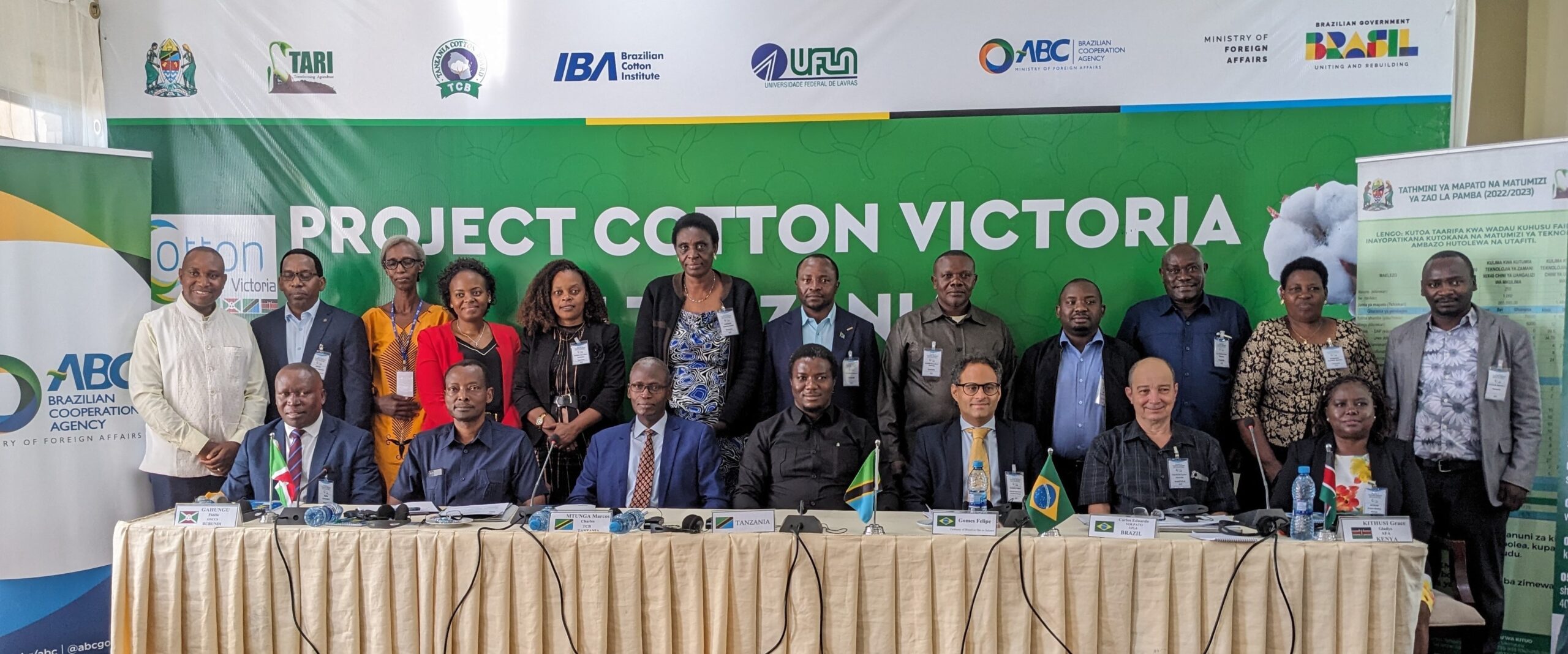(3 Minutes Read)
The Cotton farmers in Tanzania’s Singida Region have successfully developed biopesticides and other farming practices which have enabled them to grow cash crops organically, a move that made it possible to harvest improved yields. Dr. Paul Saidia, coordinator for the Cotton Victoria Project (CVP) the Director of TARI Ukiriguru Centre revealed this.
The benefactors in Singida demonstrated high maturity and readiness in learning, innovating and practicing vital knowledge which are being imparted.TARI is bridging efforts with the BioSustain Tanzania Limited to train and mentor the involved farmers how best to develop and apply the various biopesticides in order to grow cotton organically, but also to withstand effects of climate change towards the fibre crop.
For instance, through use of biochar, the farmers are managing to heighten soil PH percentage and water retention capacity, which are the necessary requirements for the smooth thriving of cotton plants, said Dr.Saidia. Biochar is the lightweight black residue, consisting of carbon and ashes, remaining after the pyrolysis of biomass, and is a form of charcoal. The project has also trained the farmers in seed dressing, the vital process of applying a thin layer of active product on the surface of the seed, this can be any organic or inorganic compounds, and it can also include pesticides, fertilizers, and some growth promoters.
CVP is a brainchild between the government of Brazil and TARI-Ukiriguru Center with an eye to increase the institutional capacity and human resources training in the use and dissemination of technology in the cotton production sector. Over 9,000 cotton farmers in Singida region are benefiting with the USD 5,802,019.08 worth project which is implemented jointly with others stakeholders including Tanzania Cotton Board (TCB), BioSustain Tanzania Limited, Brazilian Cooperation Agency (ABC), Brazilian Cotton Institute (IBA), and the Federal University of Lavras (UFLA).
Apart from assisting the farmers to grow organically, the project is empowering the growers to adopt the new planting space of 60 centimetres from row to row, and 30 centimetres from hole to hole, bringing the number of the cotton plants to 44,444 per acre from the formal 22,222 plants.
With the new system, more than 5000 cotton growers who have so far adopted it, which is at least 51 percent of the total of 9,656 farmers who grows the economic cash crop in the region, are currently managing to harvest over 2.2 tons per acre, thus pocketing up to 2m/- ,ever before.The developed biopesticides include microorganisms that control pests (microbial pesticides), and pesticide substances produced by plants containing added genetic material (plant-incorporated protectants).
Read Also:
https://trendsnafrica.com/african-cotton-4-demands-to-scrap-cotton-subsidies-in-richer-countries/
https://trendsnafrica.com/tanzanias-export-of-raw-cotton-to-pakistan-picks-up/
Through the development, the farmers who are benefiting from the ongoing CVP have succeeded to battle against common cotton diseases, such as cotton jassid, American boll worms and thrips, among others. The organic (natural) pesticides in question include use of sodom apples (calotropis procera), cow’s urine, manure as well as use of biochar.





